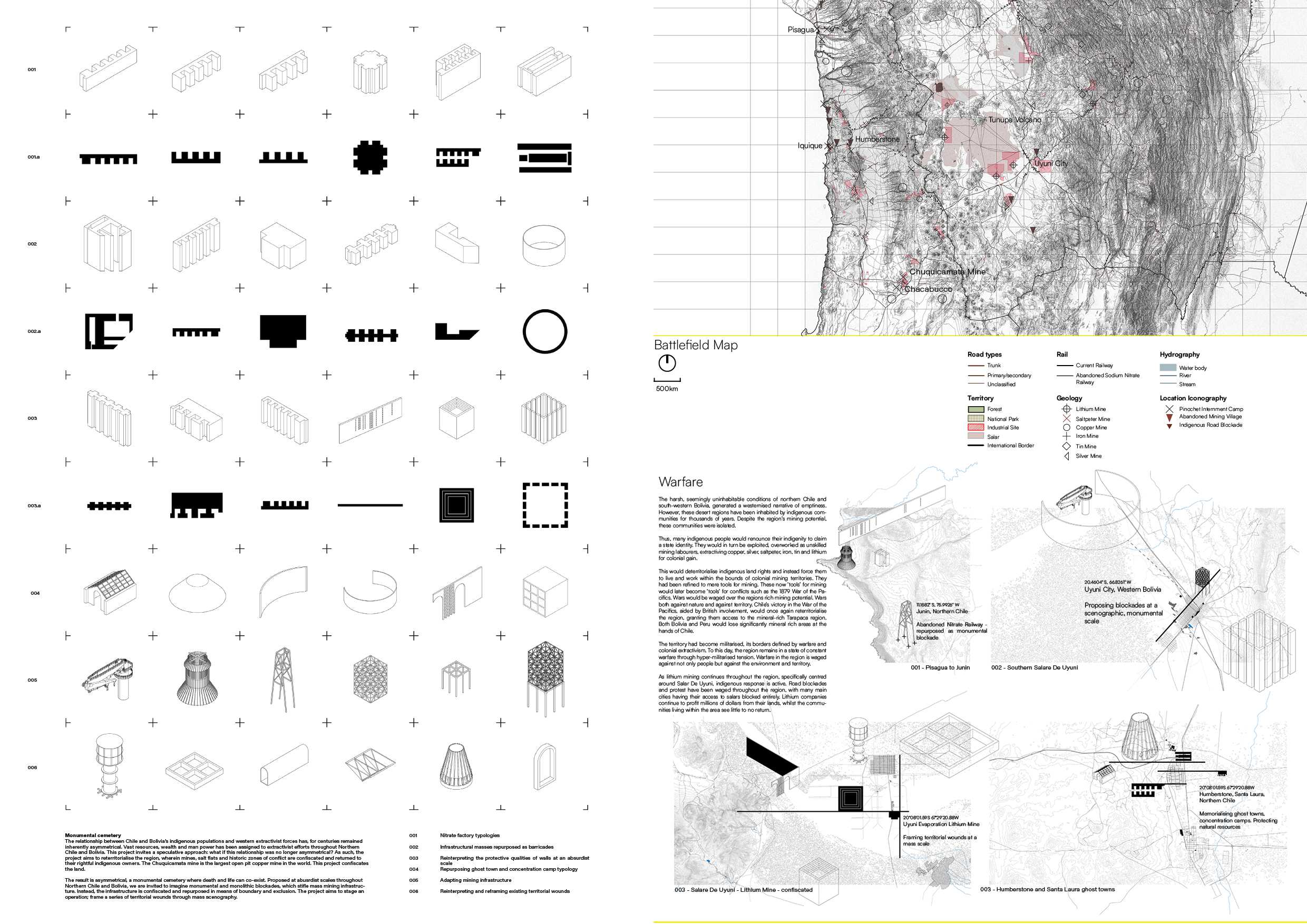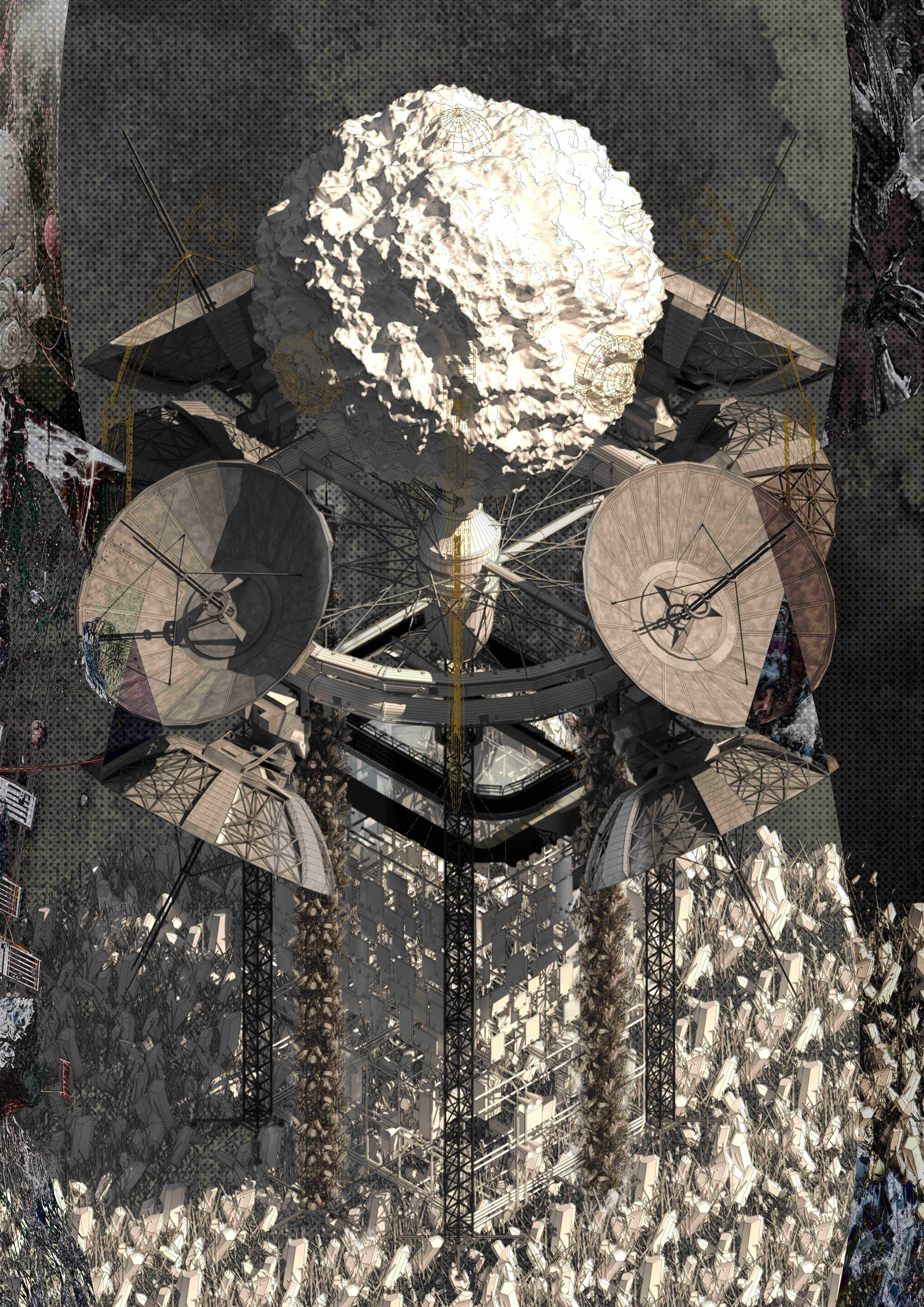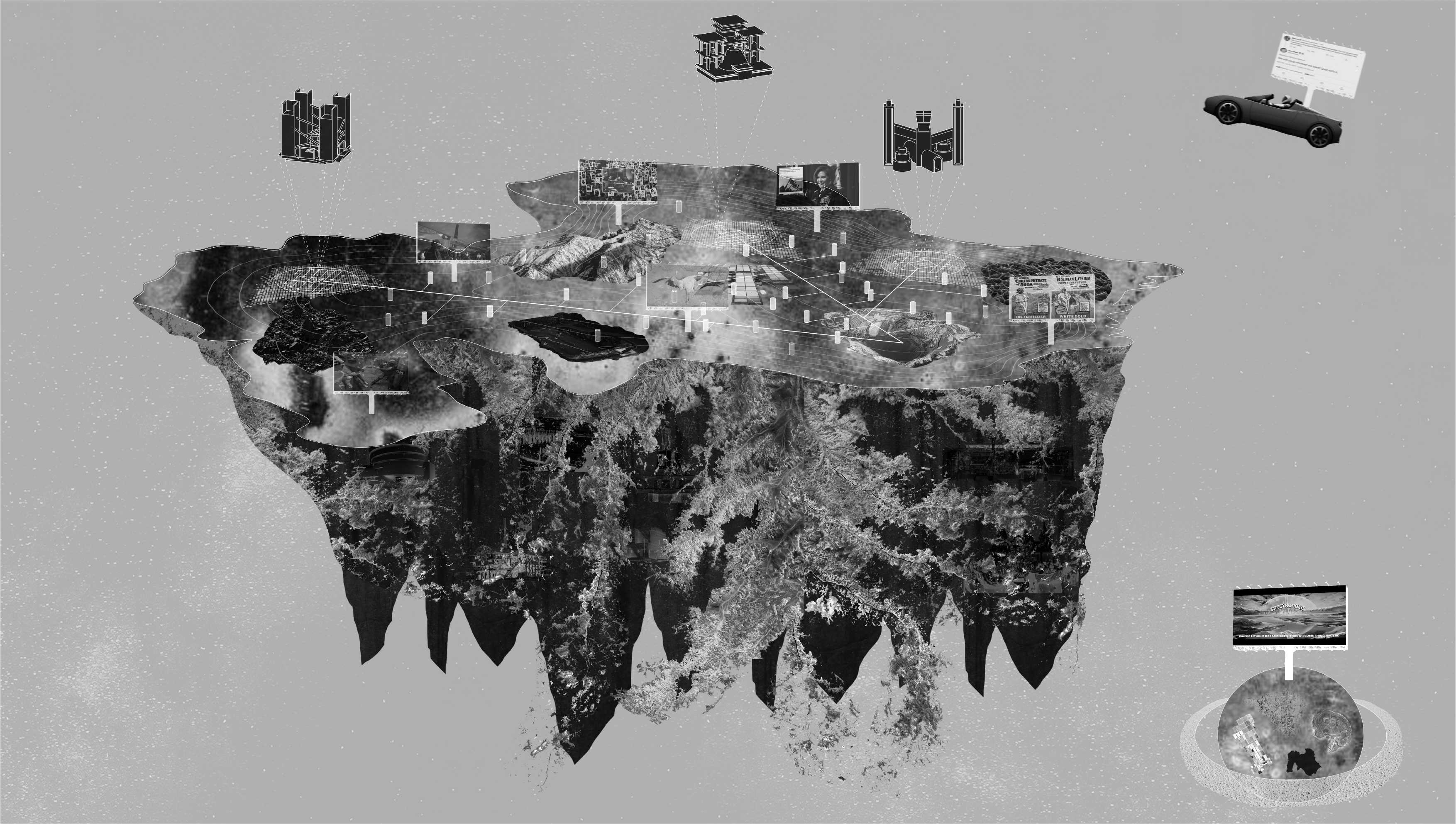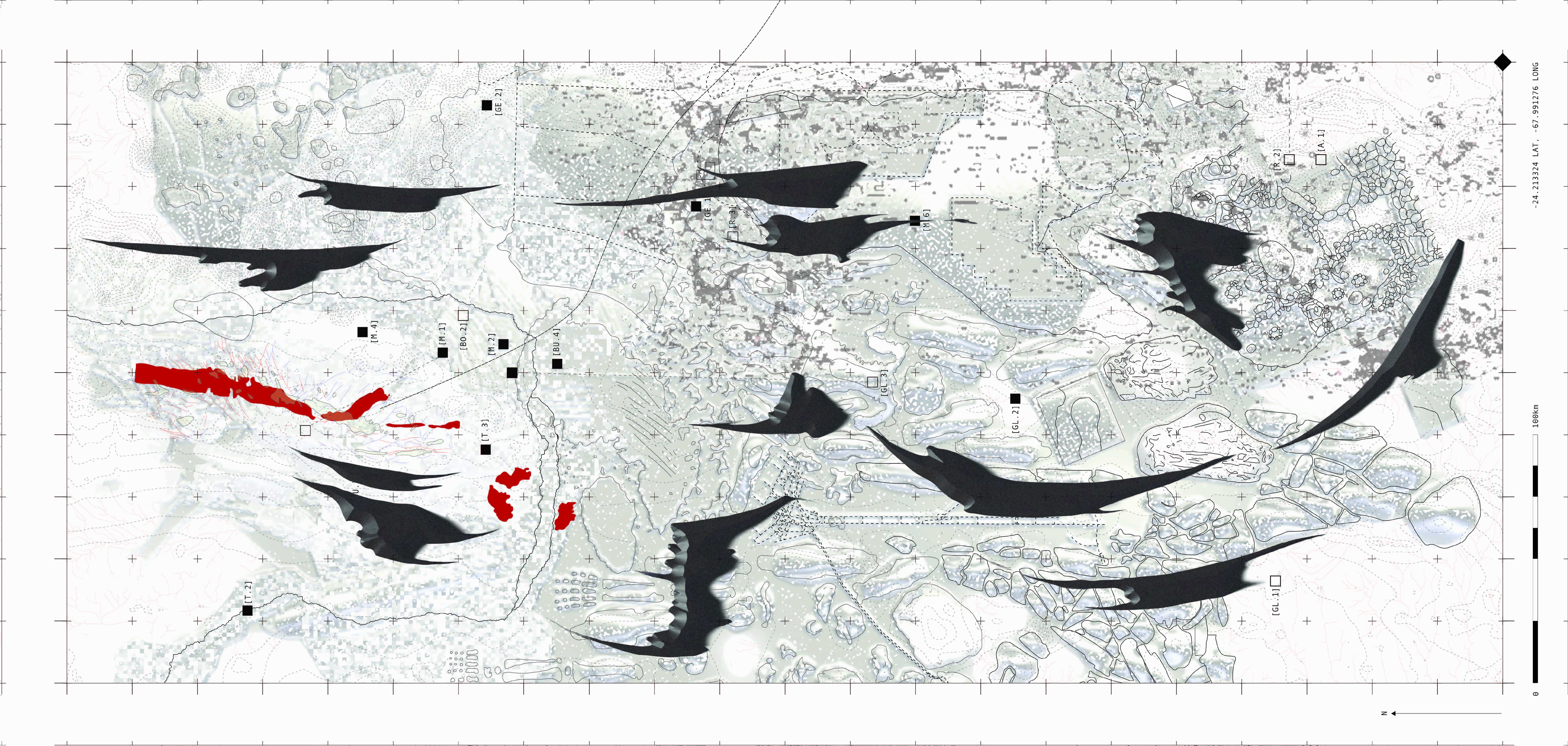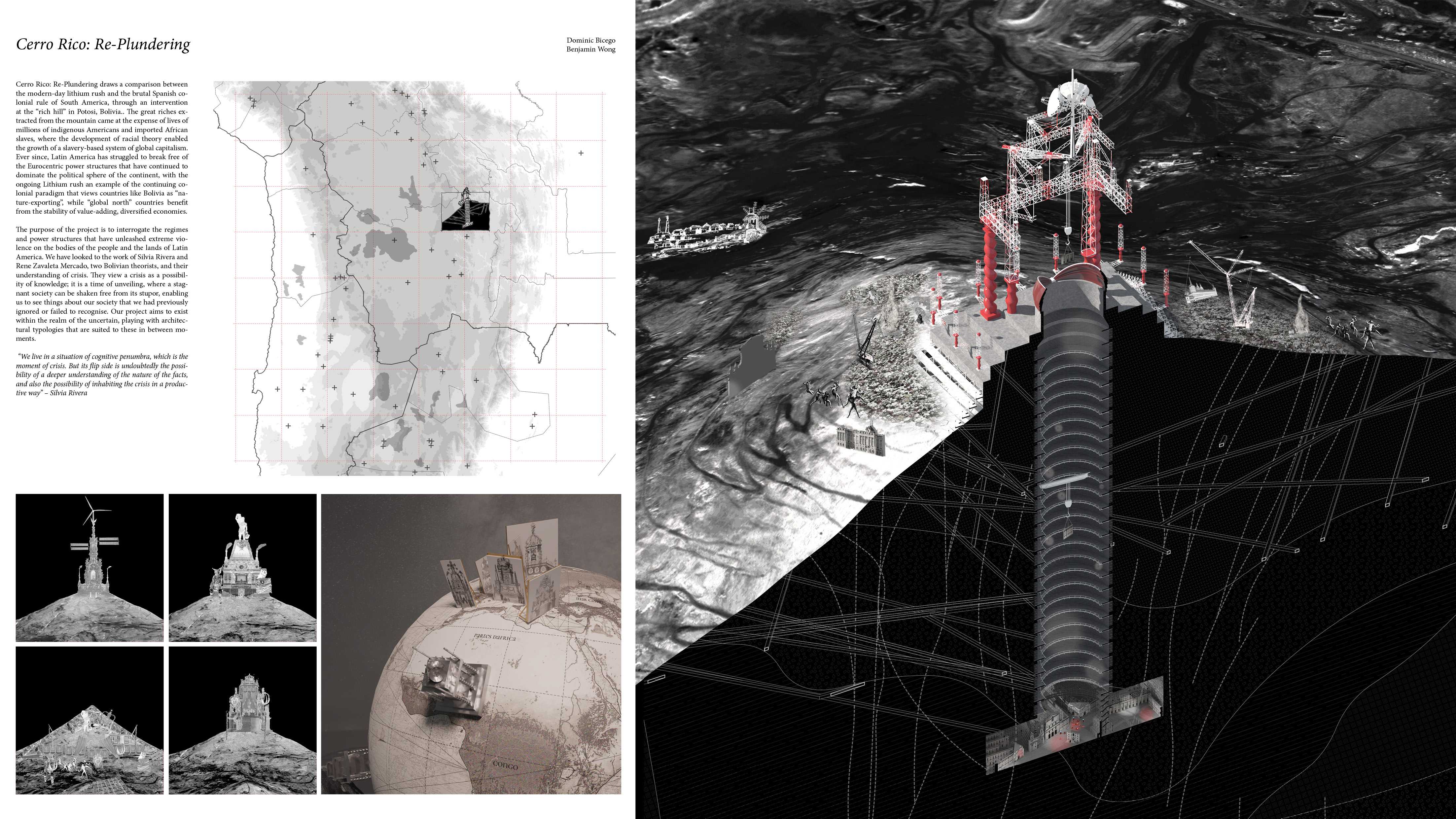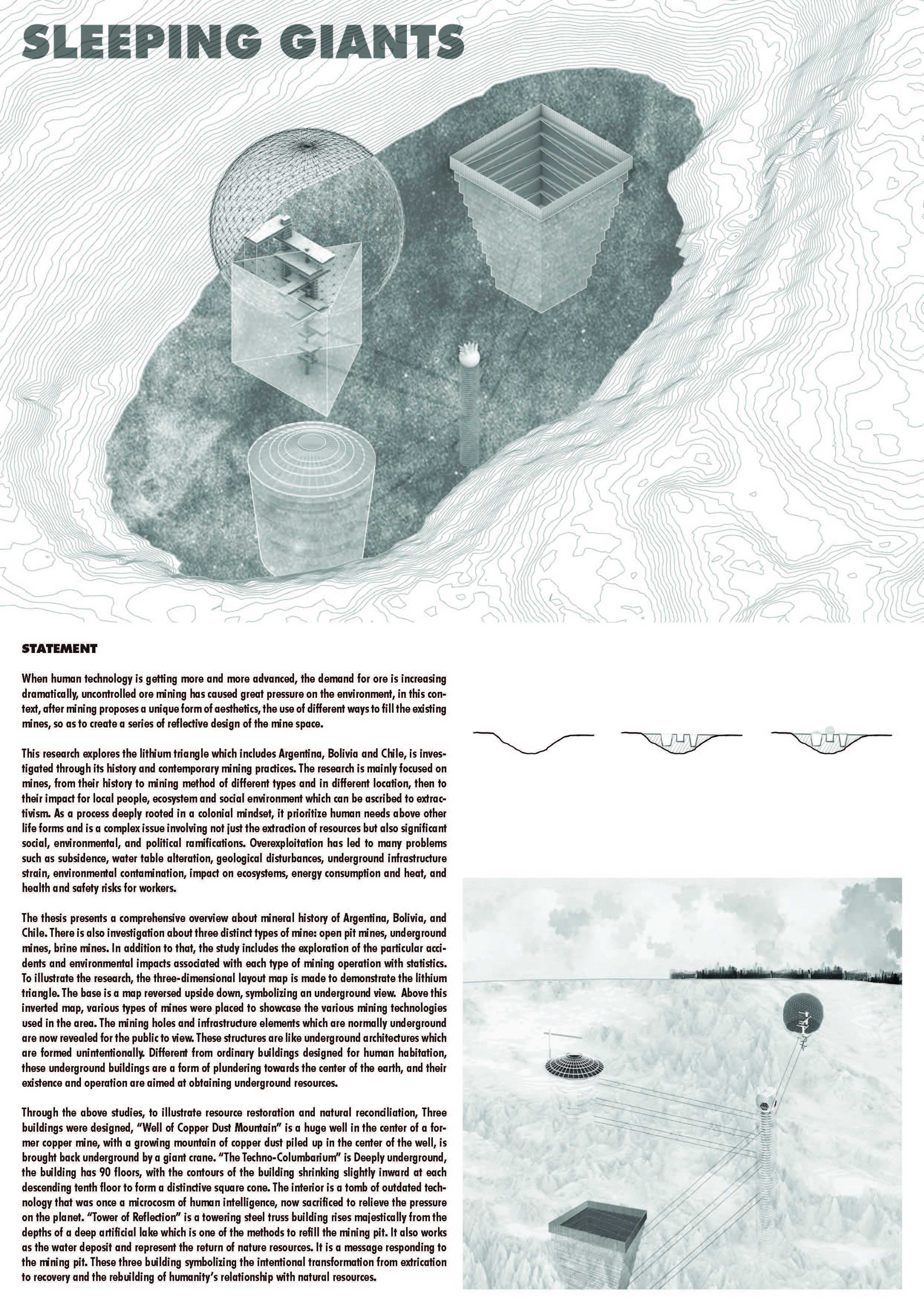This studio interrogates and challenges contemporary territorial agendas for climate change action through critical acts of spatial speculation and representation. Turning the focus away from linear, colonial imagining for frameworks, it instead seeks to imagine from – to draw on speculative territorial fictions and pre-existences that undo ‘neo-extractivist’ imaginaries. The site is the ‘Lithium Triangle’, an immense territorial demarcation across three neighbouring South American nations – Chile, Bolivia and Argentina – with 60-80 per cent of the world's known deposits of lithium. Starting from a conceptual premise about the fluidity of life-death boundaries in capitalist modernity on one hand and the site condition of this place on the other, the studio immerses students in a strongly theoretical, yet practical investigation about the past, present and potential territorialisations of the infinite possible boundary conditions between life and death.
Questions of energy transition from toxic fossil fuels are interrogated in the context of lithium as a supposed means of transition. However, efforts to preserve life from climate change impacts are triggering (and targeting) rapid destructions of immense territories and unique ecosystems such as those of the ‘Lithium Triangle’. The studio asks what we are aiming to preserve and indeed whether our species can survive without further spreading death: which lives are worth grieving and which are not? Deadly times, however, don’t inevitably mean doom. Instead, projects explore how we must decide and imagine ways of facing or spatialising death/life boundaries and including death-perspectives if we want to ‘design’ liveable futures.
